#best doctor in homeopathy
Explore tagged Tumblr posts
Text

Cold Sore Treatment in Kolkata by Dr. Anindita Mukherjee, The Best homeopathy doctor in Kolkata.
#best homeopathy doctor in Kolkata#top homeopathy doctor in kolkata#homeopathy doctor in kolkata#best homeopathy clinic near me#best doctor in homeopathy#lady homeopathy doctor in kolkata
0 notes
Text
*Dr. Smita Goel Homeopathy Clinic*
www.thehomeopathyclinic.co.in
Our immune system is our body’s defense against infections and other harmful invaders. Without it, we would constantly get sick from bacteria or viruses.
Our immune system is made up of special cells, tissues, and organs that work together to protect us.
Normally, the immune system can tell the difference between foreign cells and our own cells.
In an autoimmune disease, the immune system mistakes part of our body, like our joints or skin, as foreign. It releases proteins called autoantibodies that attack healthy cells.
Some autoimmune diseases target only one organ. Type 1 diabetes damages the pancreas. Other diseases, like Systemic Lupus Erythematosus (SLE), affect the whole body..
Women get autoimmune diseases rate is high compared to men. Often the disease starts during a woman’s childbearing years (15Years to 44Years).
Certain autoimmune diseases, like multiple sclerosis and lupus, run in families. Not every family member will necessarily have the same disease, but they inherit a susceptibility to an autoimmune condition.
Because the incidence of autoimmune diseases is rising, researchers suspect environmental factors like infections and exposure to chemicals or solvents might also be involved. Our modern life style, working style and foods are also huge causes.
We don’t know exactly what causes autoimmune diseases. Genetics, diet, infections, and exposure to chemicals might be involved.
The lymph or lymphatic, system is a major part of the immune system. It's a network of lymph nodes and vessels. Lymphatic vessels are thin tubes that branch, like blood vessels, throughout the body. They carry a clear fluid called lymph. Lymph contains tissue fluid, waste products, and immune system cells. Lymph nodes are small, bean-shaped clumps of immune system cells that are connected by lymphatic vessels. They contain white blood cells that trap viruses, bacteria, and other invaders, including cancer cells.
White blood cells are the cells of the immune system. They are made in one of your lymph organs, the bone marrow. Other lymph organs include the spleen and thymus.
When our immune system doesn't work the way it should, it is called an immune system disorder.
• Primary immune deficiency – Be born with a weak immune system.
• Acquired immune deficiency – Get a disease that weakens your immune system.
• Allergic reaction – Have an immune system that is too active.
• Autoimmune disease – Have an immune system that turns against you.
There are some common examples:
• Severe combined immunodeficiency (SCID) is an example of an immune deficiency that is present at birth. Children are in constant danger of infections from bacteria, viruses, and fungi. This disorder is sometimes called “bubble boy disease.”
• Temporary acquired immune deficiencies. Our immune system can be weakened by certain medicines, for example: This can happen to people on chemotherapy or other drugs used to treat cancer. It can also happen to people following organ transplants who take medicine to prevent organ rejection. Also, infections like the flu virus, mono (mononucleosis), and measles can weaken the immune system for a brief time. Our immune system can also be weakened by smoking, alcohol, and poor nutrition.
• AIDS. HIV, which causes AIDS, is an acquired viral infection that destroys important white blood cells and weakens the immune system. People with HIV/AIDS become seriously ill with infections that most people can fight off. These infections are called “opportunistic infections” because they take advantage of weak immune systems.
If we are born with certain genes, our immune system may react to substances in the environment that are normally harmless. These substances are called allergens. Having an allergic reaction is the most common example of an overactive immune system. Dust, mold, pollen, and foods are examples of allergens.
Some conditions caused by an overactive immune system are:
• Asthma: The response in our lungs can cause coughing, wheezing, and trouble breathing. Asthma can be triggered by common allergens like dust or pollen or by an irritant like tobacco smoke.
• Eczema: An allergen causes an itchy rash known as atopic dermatitis.
• Allergic rhinitis: Sneezing, a runny nose, sniffling, and swelling of your nasal passages from indoor allergens like dust and pets or outdoor allergens like pollens or molds.
In autoimmune diseases, the body attacks normal, healthy tissues. The causes are unknown. It is probably a combination of a person’s genes and something in the environment that triggers those genes.
There are some common autoimmune diseases are:
• Type 1 diabetes: The immune system attacks the cells in the pancreas that make insulin. Insulin removes sugar from the blood to use as energy.
• Rheumatoid arthritis: This type of arthritis causes swelling and deformities of the joints. An auto-antibody called rheumatoid factor is in the blood of some people with rheumatoid arthritis.
• Lupus: This disease that attacks body tissues, including the lungs, kidneys, and skin. Many types of auto-antibodies are found in the blood of people with lupus.
So, we should never ignore to our care for immunity system. Homeopathy medicines are a good choice for improving our immunity system.
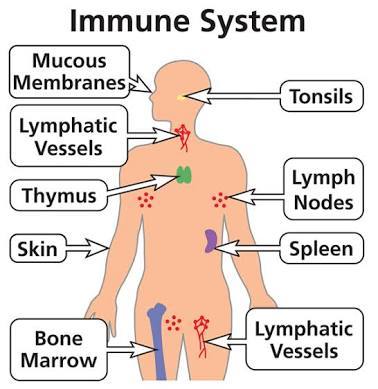
#greater noida#best homeo clinic in indirapuram#ghaziabad#homeopathy clinics#homeopathy doctor#homeopathy for ibs#best skin doctor in ghaziabad#homeopathy#homeopathy cold treatment in indirapuram#homeopathy medicine#laser treatment in indirapuram#skin specialist in indirapuram#homeopathy skin allergies treatment in indirapuram#homeopathy specialist in indirapuram#indirapuram#best homeopathy clinic in indirapuram#best homeopathy doctor#homeopathy skin allergies treatment in noida#homeopathy treatment#homoeopathy#ghaziabad latest news#best schools in ghaziabad#ghaziabadnews#ayurvedic doctor in ghaziabad#wave city ghaziabad#child doctor in noida#child specialist in noida#noida news#nursery school in greater noida#noida
6 notes
·
View notes
Text
Best Homeopathy Clinic in Noida | Dr. Deepika's Homeopathy
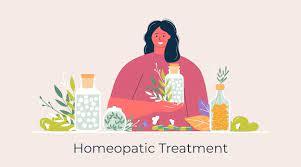
Dr. Deepika Sharma, our proficient and compassionate homeopath, is the driving force behind our clinic's success. With a wealth of experience and a deep understanding of homeopathy, she has transformed countless lives through her commitment to healing. Dr. Deepika is known for her patient-centric approach, where she takes the time to understand each individual's unique health challenges and tailors treatments to suit their specific needs.
Visit Us: https://drdeepikashomeopathy.com/
#Best Homeopathy Clinic in Noida#best homeopathic doctor near me#best homeopathic doctor in noida#best homeopathic doctor noida#top homeopathic doctor in noida
3 notes
·
View notes
Text
Homeopathy doctor in kolhapur

Homeopathy doctor in kolhapur
Kolhapur is a city in the Indian state of Maharashtra and home to many experienced homeopathy doctors. Homeopathy is an alternative medicine system that uses small doses of natural substances to stimulate the body's own healing abilities. Homeopathic doctors are trained to diagnose and treat illnesses using homeopathic remedies, which are often derived from plants, minerals, or animals.
Kolhapur has several highly qualified and experienced homeopathic doctors who are dedicated to providing their patients with personalized care and treatment plans tailored for their individual needs. With their expertise in understanding the human body’s response to various treatments, they can help people suffering from a variety of health conditions find relief without resorting to conventional medicines or treatments.
Homeopathy clinic in kolhapur
Homeopathic doctor in kolhapur
Homeopathy treatment in kolhapur
Homeopathy center in kolhapur
Best homeopathy doctor in kolhapur
Homeopathic treatment for Rheumatoid arthritis in Kolhapur
Homeopathic treatment for Psoriasis in Kolhapur
Homeopathic treatment for Asthma in Kolhapur
#homeopathy#homeopathic#homeopathy doctor#homeopathy doctor in Kolhapur#best homeopathy doctor in Kolhapur#homeopathy treatment
3 notes
·
View notes
Text
Power of Homeopathy as an Effective Treatment for Migraine
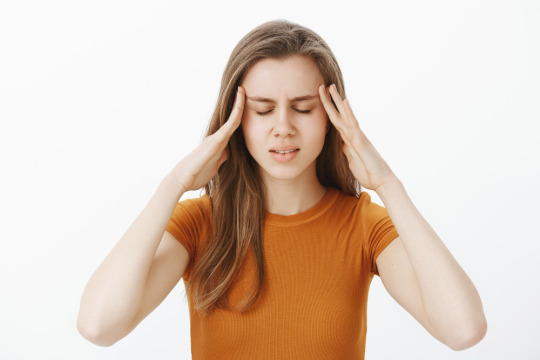
Millions of individuals worldwide suffer from the frequent neurological ailment known as migraines. Migraine is a condition that causes severe headaches, nausea, and light sensitivity that can last anywhere from a few minutes to days. A person's quality of life may be negatively impacted by the debilitating nature of migraine headaches and their potential to interfere with daily activities. Even though homeopathy is an alternative therapy, traditional medicine provides several migraine remedies, such as painkillers and prophylactic drugs. Homoeopathy is a type of complementary medicine that stimulates the body's own healing mechanisms by using greatly diluted natural chemicals. Homoeopathy has been used as an alternative medicine for over 200 years.
Homoeopathy for Migraine
Homoeopathy is a well-liked complementary treatment for migraines. Among the homoeopathic migraine treatments are Natrum muriaticum, Bryonia, Iris versicolor, and Belladonna. These treatments are thought to function by bringing the body's own energy into balance, lowering inflammation, and enhancing blood flow.
One benefit of using homoeopathy for migraines is that it doesn't have the potential side effects of using painkillers and anti-inflammatory drugs, which are common traditional migraine remedies. When administered as prescribed, homoeopathic medications are generally safe, though some patients may develop allergic responses or other negative effects.
There isn't enough data to say whether homoeopathy works to cure migraines, according to a review of clinical trials on the subject that has been released in the Cochrane Database of Systematic Reviews. The general caliber of the data is regarded as being low, despite the fact that certain individual research has shown encouraging results. To evaluate whether homoeopathy is useful for treating migraines, more research is required.
Types of Migraine:
There are two main forms of migraine.
Auratic migraine
Classical migraine is another name for migraine with aura. In this form, a feeling of aura (neurological symptoms) such as visual disturbance, hemisensory complaints, hemiparesis, or dysphasia frequently precede the attack. Most often, a visual aura is present. The aura often lasts a maximum of sixty minutes and develops over a period of 5 to 20 minutes. A headache, feeling of unwellness, and/or photophobia accompany it. The agonizing headache could persist for four to seventy-two hours.
Migraine without an aura
Ninety percent of migraine sufferers in women have this type of migraine, making it the most prevalent. This form of headache does not have an aura and only happens in episodes. An emotional condition, such as tension, euphoria, or any intense light or odor, may be the source of the headache. The headache primarily affects one side and gradually gets worse. The headache is frequently accompanied by nausea, vomiting, food intolerance, or sensitivity to bright lights and strong odors.
Prevalence of Migraine:
Females are more likely than males to experience migraines, with a male to female ratio of 1:3. Ninety percent of migraineurs have a family history of the condition. As people get older, migraine attacks become less common.
What Causes Migraines?
Genetic Propensity
High Oestrogen Levels
Sleep Deprivation
Emotional Strain
Noxious Odors
Migraine Symptoms:
Migraine Symptoms Without An Aura
The sort of vascular headache that occurs the most frequently is a migraine without aura. Moderate to severe headaches, a pulsating quality, a unilateral location, worsening by climbing stairs or engaging in other common activities, nausea and/or vomit, photophobia and phonophobia, and repeated attacks, each ranging 4 to 72 hours, are among the symptoms.
Migraine With Auratic Symptoms
The premonitory symptoms of headache can include motor, sensory, or visual complaints. Most victims have stated that visual problems are the most prevalent. Headache, feeling dizzy, and photophobia follow the aura.
Homoeopathic Migraine Treatments
Belladonna
A popular homoeopathic treatment for migraines is belladonna. The deadly nightshade plant's byproduct, belladonna, is said to have anti-inflammatory and blood flow-improving properties. Migraines with throbbing discomfort, redness, and heat are frequently treated with belladonna.
Bryonia
A typical homoeopathic treatment for migraines is bryonia. Bryonia, which is produced by the white bryony plant, is thought to function by easing pain and promoting blood flow. When a migraine occurs accompanied by a monotonous, throbbing pain that gets worse with movement, bryonia is frequently prescribed.
Versicolor iris
Homoeopathic treatment for migraines that is frequently used is iris versicolor. Iris versicolor, which comes from the blue flag plant, is thought to have anti-inflammatory and blood-flow-improving properties. Iris versicolor is frequently prescribed for migraines that come with severe, excruciating pain and nausea.
Muriatic natrum
A typical homoeopathic treatment for migraines is natrum muriaticum. Natrum muriaticum, which is made from sea salt, is thought to act by easing inflammation and enhancing blood circulation. Natrum muriaticum is frequently prescribed for migraines that come with throbbing pain and susceptibility to light.
Conclusion
There are generally no risks associated with using homoeopathy to treat migraines, unlike conventional migraine treatments. While homoeopathy may offer some migraine patients some relief, it's vital to speak with a doctor before utilizing it as a therapy. To guarantee that you obtain the right care for your migraines, it is crucial that you see a doctor. Visit us and book an appointment now with Dr. Shubham Tiwary.
#homeopathy#homeopathy doctor#homeopathic medicines#homeopathy treatment#Homeopathic remedies#best homeopathy doctor near me#homeopathy doctor near me#homeopathy near me#consult a doctor
2 notes
·
View notes
Text
#homeo doctor#homeopathy doctor#homoeo clinic#homoeo doctor#homeopathy doctor online#homeo doctor online#homeo clinic jaipur#best homeo clinic jaipur
3 notes
·
View notes
Text
#online homeopathy cunsulting#best homeopathic doctor online consultation#online homeopathy consultation near me#online homeopathic treatment
2 notes
·
View notes
Text
Best Online Homeopathy Doctors in India | Book online Homeopathy Consultation
Avikadoctors' world-class online homeopathy consultation services are research-based and scientific, and we help you access ethical homeopathic treatment procedures. Online Homeopathic Clinic
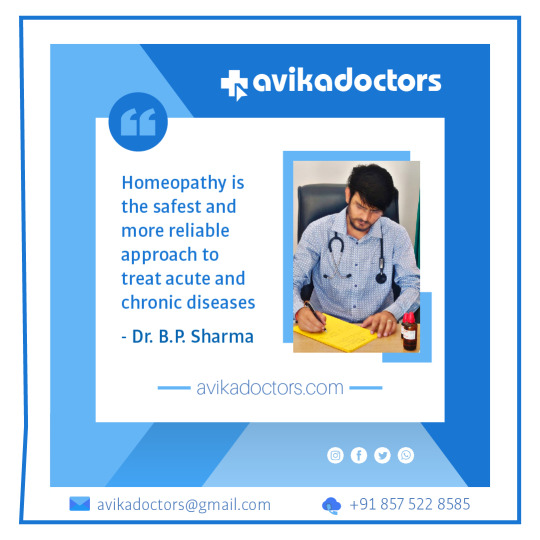
#homeopathicdoctor#homeopathy#homeopathyforall#homeopathytreatment#homeopathydoctors#homeopathicmedicine#homeopathic#homeopathicdoctor
#Online Homeopathic Clinic#Homeopathy Doctor Online#Online Homeopathic Doctor India#online homeopathy treatment#Online Homeopathy Consultation#Online Homeopathic Doctor#online homeopathy treatment In India#Homeopathy Best Doctors#Top Homeopathy Doctor Near Me#Homeopathic Doctors Online
2 notes
·
View notes
Text
Protecting Your Health: Avoiding and Managing Urinary Infections

INTRODUCTION
Urinary tract infections (UTIs) are a common health issue that affects people of all ages, including adolescents and adults. While conventional medicine often relies on antibiotics to treat UTIs, homeopathy offers a natural and holistic approach to managing this condition. With the rise of interest in alternative therapies, many individuals are turning to homeopathy clinics in Mumbai for a more personalized and gentle treatment plan. Whether you’re searching for the best homeopathy doctor in Mumbai or specifically a homeopathy doctor in Malad West, this essay will explore how homeopathic remedies can help treat UTIs and provide tips on finding the best homeopathy clinic in Mumbai.
Understanding Urinary Tract Infections (UTIs)
A urinary tract infection occurs when bacteria invade the urinary system, which includes the kidneys, bladder, urethra, and ureters. UTIs can cause symptoms such as painful urination, frequent urges to urinate, lower abdominal pain, and cloudy or blood-tinged urine. While antibiotics are typically the go-to treatment for UTIs in conventional medicine, many individuals are seeking homeopathy treatment in Mumbai for a gentler and more holistic approach.
Homeopathy for Urinary Tract Infections
Homeopathy treats the body as a whole, addressing the underlying causes of disease rather than just focusing on symptoms. For individuals suffering from UTIs, homeopathic remedies can be an effective and natural alternative to antibiotics. Remedies are tailored to each patient’s unique constitution, taking into account their physical, emotional, and mental well-being.
Some commonly used homeopathic remedies for UTIs include:
Cantharis: Often prescribed for patients experiencing intense burning sensations during urination and a frequent urge to urinate with little output.
2 .Apis Mellifica: This remedy is ideal for UTIs with swelling, burning sensations, and a feeling of fullness in the bladder.
3 .Staphysagria: Recommended for UTIs that result from emotional stress or anger, especially in individuals who are prone to urinary retention or frequent infections.
4. Berberis Vulgaris: This remedy is used for UTIs with lower back pain and sharp, cramping pains in the bladder region.
Unlike antibiotics, which may have side effects and lead to resistance when used frequently, homeopathic treatments focus on stimulating the body’s own healing mechanisms, thereby providing long-term relief from recurrent UTIs without the risk of side effects.
Finding the Best Homeopathy Doctor in Mumbai
When seeking homeopathic treatment for UTIs or any other condition, it’s crucial to find a reputable and experienced practitioner. Mumbai is home to many qualified homeopathy doctors, and several clinics are renowned for their expertise and success in treating a variety of ailments.
If you’re searching for the best homeopathy doctor in Mumbai, consider the following factors:
Experience and Qualifications: Look for a homeopathy doctor in Mumbai with extensive experience and recognized qualifications in the field of homeopathy. The best homeopathic practitioners are typically licensed and have studied at reputed institutions.
Patient Reviews and Testimonials: Word-of-mouth recommendations can be invaluable when selecting a homeopathy doctor in Malad West or any other area of Mumbai. Check online reviews and testimonials to learn about the experiences of other patients who have received treatment for UTIs or similar issues.
Personalized Care: The best homeopathy clinics in Mumbai offer individualized care, where the doctor takes the time to understand your unique health needs, symptoms, and lifestyle factors. Personalized treatment ensures better results and a more comfortable experience.
Holistic Approach: Homeopathy is about treating the whole person, not just the symptoms. A homeopathic doctor in Mumbai who takes a holistic approach and considers your emotional, physical, and mental health will be better equipped to help manage UTIs and prevent future occurrences.
Consultation Process: The consultation process in a homeopathy clinic Mumbai should involve a detailed analysis of your medical history, lifestyle, and current health issues. A thorough assessment helps the doctor recommend the most suitable remedies for your condition.
Best Homeopathy Clinics in Mumbai
Mumbai boasts some of the most renowned homeopathy clinics in India, known for their expertise in treating a wide range of conditions, including UTIs. If you’re searching for the best homeopathy clinic in Mumbai, here are some tips to consider:
Specialization in UTI Treatment: Some homeopathy clinics in Mumbai may specialize in treating urinary tract infections and other related disorders. Look for a clinic that has a proven track record of successfully treating UTIs and offering comprehensive care.
Use of High-Quality Remedies: The best homeopathy clinics in Mumbai use high-quality, ethically sourced remedies to ensure the effectiveness of treatments. Check if the clinic follows strict quality control standards in preparing and dispensing remedies.
Comfort and Convenience: Choose a clinic that offers a comfortable and welcoming environment. Whether you’re visiting a homeopathy doctor in Malad West or any other area, the clinic should provide easy access, friendly staff, and a relaxing atmosphere.
Ongoing Support: Reputable clinics often provide follow-up consultations and ongoing support to monitor your progress. This ensures that your treatment plan is adjusted as needed for optimal results.
Why Choose Homeopathy for UTIs in Mumbai?
No Side Effects: One of the main reasons individuals turn to homeopathy for UTIs is to avoid the side effects of antibiotics, such as stomach discomfort, yeast infections, and antibiotic resistance.
Prevention of Recurrence: Homeopathy focuses on strengthening the body’s immune system, which helps prevent recurrent UTIs. This long-term approach is especially beneficial for individuals who experience frequent urinary infections.
Holistic Healing: Homeopathy treats the root causes of health issues, rather than just alleviating symptoms. For chronic UTI sufferers, this approach can lead to lasting improvements in overall health and well-being.
Individualized Treatment: Homeopathic remedies are customized to suit each person’s specific health needs, making treatment highly personalized. Whether you’re seeking the best homeopathy doctor in Mumbai or the homeopathic best doctor in Mumbai, personalized care ensures better outcomes.
Conclusion
For individuals seeking a natural, effective, and holistic solution for urinary tract infections, homeopathy offers a promising alternative to conventional treatments. If you’re located in Mumbai, you can find excellent homeopathy clinics offering personalized care tailored to your unique needs. Whether you’re looking for a homeopathy doctor in Malad West or the best homeopathy doctor in Mumbai, homeopathy provides a gentle and non-invasive option for treating UTIs and promoting long-term health. By choosing the right homeopathy clinic in Mumbai, you can achieve relief from UTIs while supporting your overall well-being in a safe and natural way.
Why Choose Dr. Sarran’s Homeopathic Clinic?
Best Homeopathy Clinic in Malad West: Our reputation for excellence in care sets us apart.
Top 10 Homeopathy Doctors in Mumbai: Dr. Sarran is recognized for his expertise and compassionate approach.
Homeopathic Treatment in Malad West: We specialize in addressing gynecological issues with personalized care.
Expert in Homeopathic Gynecology Treatment: Our focus is on holistic, effective solutions tailored to your needs.
Explore the profound benefits of homoeopathy Headaches for issues at our clinic, and take the vital step towards a healthier, happier life!
Contact Us for Personalized Care
For expert homoeopathic Headaches Hcare, visit Dr. Sarran’s Homeopathic Clinic:
Address: A-501 Whispering Heights, Chincholi Bunder Rd, Mindspace, Malad West, Mumbai, Maharashtra 400064
Phone: +91 89284 85026
Email: [email protected]
#homeopathy#drsarran#best homeopathy doctor#best homeopathy doctors#homeopathy for everyday living#healthcare#allergies#treatment#mumbaidoctor#improve your immunity with homeopathy
0 notes
Text

PDM Hospital, the best homeopathy hospital in Bhiwani, is a multi-specialty hospital that has earned a reputation for providing top-notch medical services, including homeopathic treatments. The hospital aims to offer modern healthcare while integrating traditional and
#Who is the most famous homeopathic doctor#What is the highest degree in Homeopathy#Which country is best for Homeopathy doctor
0 notes
Text
Homeopathy Doctor Mohali | The Homeo Saga
In the bustling city of Mohali, the demand for holistic health solutions is on the rise, making homoeopathy a popular choice among residents. Homeopathy focuses on treating the individual as a whole, considering not just physical symptoms but also emotional and psychological factors.Homeopathy doctors in Mohali are dedicated to providing personalised care tailored to each patient’s unique needs. They utilise natural remedies derived from plants, minerals, and animal sources, ensuring minimal side effects. This approach promotes the body’s innate ability to heal itself, making homoeopathy suitable for various ailments, from chronic conditions to acute illnesses.
Patients seeking homoeopathic treatment can benefit from the extensive knowledge and experience of local practitioners. Many homoeopathy doctors in Mohali are well-versed in modern medical science, allowing them to integrate homoeopathic principles with conventional healthcare when necessary.Choosing a homoeopathy doctor in Mohali not only offers a compassionate and patient-centred approach to health but also fosters long-term well-being. Whether you’re dealing with allergies, digestive issues, or stress-related disorders, a homoeopathic consultation could be the key to unlocking a healthier, more balanced life. Explore your options and embrace the power of natural healing today!

0 notes
Text

Gastro Intestinal Disease Treatment at kolkata by Dr.Anindita's Homeoclinic, the best homeopathy clinic in kolkata
#best homeopathy doctor in Kolkata#top homeopathy doctor in kolkata#best homeopathy clinic near me#homeopathy doctor in kolkata#lady homeopathy doctor in kolkata#best doctor in homeopathy
0 notes
Text
*Dr. Smita Goel Homeopathy Clinic*
www.thehomeopathyclinic.co.in
A person with short stature, or restricted growth, does not grow as tall as other people of the same gender, age, and ethnicity. The person's height is below the 3rd percentile.
Short stature can be a variant of normal growth, or it may indicate a disorder or condition.
Growth rate is an important indicator of overall health. Children who do not reach the 5th percentile by the age of 5 years are said to be small for gestational age (SGA). A pediatrician will look out for signs of "failure to thrive."
Early intervention can prevent future problems in many cases.
Normally, at 8 years of age, a child's arm span is around the same as their height. If these measurements are out of proportion, this may be a sign of disproportionate short stature (DSS), sometimes known as "dwarfism."
Fast facts on short stature
Here are some key points about short stature. More detail is in the main article.
• Short stature can happen for a wide range of reasons, including having small parents, malnutrition, and genetic conditions such as achondroplasia.
• Proportionate short stature (PSS) is when the person is small, but all the parts are in the usual proportions. In disproportionate short stature (DSS), the limbs may be small compared with the trunk.
• If short stature results from a growth hormone (GH) deficiency, GH treatment can often boost growth.
• Some people may experience long-term medical complications, but intelligence is not usually affected.
Causes
Growth depends on a complex range of factors, including genetic makeup, nutrition, and hormonal influences.
The most common cause of short stature is having parents whose height is below average, but around 5 percent of children with short stature have a medical condition.
Conditions that can underlie short stature include:
• Undernutrition, due to a disease or lack of nutrients
• Hypothyroidism, leading to a lack of growth hormone
• A tumor in the pituitary gland
• Diseases of the lungs, heart, kidneys, liver, or gastrointestinal tract
• Conditions that affect the production of collagen and other proteins
• Some chronic diseases, such as celiac disease and other inflammatory disorders
• Mitochondrial disease, which can affect the body in different ways, including growth
Sometimes, an injury to the head during childhood can lead to reduced growth.
A lack of growth hormone can also lead to delayed or absent sexual development.
Rheumatologic diseases, such as arthritis, are linked to short stature. This may happen because of the disease, or as a result of the glucocorticoid treatment, which can affect the release of growth hormone.
Disproportionate short stature (DSS) usually stems from a genetic mutation that affects the development of bone and cartilage and undermines physical growth.
The parents may not have short stature, but they may pass on a condition that is linked to DSS, such as achondroplasia, mucopolysaccharide disease, and spondyloepiphyseal dysplasia (SED).
Types
There are different types and causes of short stature, or restricted growth, and they will present differently. Because the range of conditions is so broad, restricted growth can be classified in various ways.
One categorization is:
• Variant restricted growth
• Proportionate short stature (PSS)
• Disproportionate short stature (DSS)
Each of these categories includes a number of types and causes of short stature.
Variant restricted growth
Sometimes a person is small but otherwise healthy. This can be referred to as variant restricted growth. It may happen for genetic or hormonal reasons.
If the parents are also small, this can be called familial short stature (FSS). If it stems from a hormonal issue, it is a constitutional delay in growth and adolescence (CDGA).
The limbs and the head develop in proportion with the spine, and the individual is otherwise healthy.
Growth happens throughout the body, so the legs, for example, are in proportion with the spine.
In most cases, the individual's parents are also small, but sometimes small stature happens because the body does not produce enough growth hormone (GH), or the body does not process growth hormone properly. This is known as GH insensitivity. Hypothyrodism can lead to low hormone production.
Growth hormone treatment during childhood may help.
Proportionate short stature (PSS)
Sometimes, overall growth is restricted, but the person's body is in proportion, and the individual has a related health problem. This is known as proportionate short stature (PSS).
If the individual is heavy for their height, this can suggest a hormone problem. The problem could be hypothyroidism, excess glucorticoid production, or too little GH.
A person who is small and their weight is low for their height may be experiencing malnutrition, or they may have a disorder that leads to malabsorption.
Whatever the underlying reason, if it affects overall growth, it may impact development in at least one body system, so treatment is needed.
During adulthood, a person with this type of restricted growth is more likely to experience:
• osteoporosis
• cardiovascular problems
• reduced muscle strength
Rarely, there may be cognitive problems, or problems with thinking. This depends on the cause of the short stature.
Disproportionate short stature (DSS)
Disproportionate short stature (DSS) is linked to a genetic mutation. The parents are usually of average height. As with other types of short stature, a range underlying causes is possible.
An individual with DSS will be small in height, and they will have other unusual physical features. These may be visible at birth, or they may develop in time as the infant develops.
Most individuals will have an average-sized trunk and short limbs, but some people may have a very short trunk and shortened, but disproportionately large limbs. Head size may be disproportionately large.
Intelligence or cognitive abilities are unlikely to be affected unless the person has hydrocephalus, or too much fluid around the brain.
Achondroplasia underlies around 70 percent of cases of DSS. It affects around 1 in 15,000 to 1 in 40,000 people.
Features include:
• an average-sized trunk
• short limbs, especially the upper arms and legs
• short fingers, possibly with a wide space between the middle and ring fingers
• limited mobility in the elbows
• a large head with a prominent forehead and flattened bridge of the nose
• bowed legs
• lordosis, a progressive development of a swayed lower back
• average adult height of 4 feet, or 122 cm
Hypochondroplasia is a mild form of achondroplasia. It may be difficult to differentiate between familial short stature and achondroplasia.
Achondroplasia and hypochondroplasia result from a genetic mutation.
Genetic conditions, such as Turner syndrome, Down syndrome, or Prader Willi syndrome, are also linked to DSS.
Diagnosis
Some types of short stature can be diagnosed at birth. In other cases, routine visits to a pediatrician should reveal any abnormal growth pattern.
The doctor will record the child's head circumference, height, and weight.
If the doctor suspects restricted growth, they will carry out a physical examination, look at the child's medical and family history, and possibly carry out some tests.
These may include:
An x-ray, to assess for problems with bone development
An insulin tolerance test, to check for a deficiency in the growth hormone insulin-like growth factor-1 (IGF-1).
In this test, insulin is injected into a vein, causing blood glucose levels to drop. Normally, this would trigger the pituitary gland to release growth hormone (GH). If GH levels are lower than normal, there may be a GH deficiency.
Other tests include:
• a thyroid-stimulating hormone test, to check for hypothyroidism
• a complete blood count, to test for anemia
• metabolic tests, to assess liver and kidney function
• erythrocyte sedimentation and C-reactive protein tests, to assess for inflammatory bowel disease
• urine tests can check for enzyme deficiency disorders
• tissue transglutinase and immunoglobulin A tests, for celiac disease
• imaging scans, such as an x-ray of the skeleton and the skull or an MRI, can detect problems with the pituitary gland or hypothalamus
• bone marrow or skin biopsies may help confirm conditions associated with short stature
Treatment
Treatment will depend on the cause of the short stature.
If there are signs of malnutrition, the child may need nutritional supplements or treatment for a bowel disorder or other condition that is preventing them from absorbing nutrients.
If growth is restricted or delayed because of a hormonal problem, GH treatment may be necessary.
Pediatric hormone treatment: In children who produce too little GH, a daily injection of hormone treatment may stimulate physical growth later in life. Medications, such as somatropin, may eventually add 4 inches, or 10 centimeters, to adult height.
Adult hormone treatment
: Treatment for adults can help protect against complications, for example, cardiovascular disease and low bone mineral density.
Somatropin, also known as recombinant GH, might be recommended for people who:
• have a severe growth hormone deficiency
• experience impaired quality of life
• are already receiving treatment for another pituitary hormone deficiency
Adult patients generally self-administer daily with an injection.
Adverse effects of somatropin include headache, muscle pain, edema, or fluid retention, problems with eyesight, joint pain, vomiting, and nausea.
The patient may receive treatment to control chronic conditions, such as heart disease, lung disease, and arthritis.
Treatment for DSS
As DSS often stems from a genetic disorder, treatment focuses mainly on the complications.
Some patients with very short legs may undergo leg lengthening. The leg bone is broken and then fixed into a special frame. The frame is adjusted daily to lengthen the bone.
This does not always work, it takes a long time, and there is a risk of complications, including:
• pain
• the bone forming badly or at an inappropriate rate
• infection
• deep vein thrombosis (DVT), a blood clot in a vein
Other possible surgical treatments include:
• use of growth plates, where metal staples are inserted into the ends of long bones where growth takes place, to help bones grow in the right direction
• inserting staples or rods to help the spine form the right shape
• increasing the size of the opening in the bones of the spine to reduce pressure on the spinal cord
Regular monitoring can reduce the risk of complications.
Complications
A person with DSS may experience a number of complications.
These include:
• arthritis later in life
• delayed mobility development
• dental problems
• bowed legs
• hearing problems and otitis media
• hydrocephalus, or too much fluid in the brain cavities
• hunching of the back
• limb problems
• swaying of the back
• narrowing of the channel in the lower spine during adulthood and other spine problem
• sleep apnea
• weight gain
• speech and language problems
Individuals with proportionate short stature (PSS) may have poorly developed organs and pregnancy complications, such as respiratory problems. Delivery will normally be by cesarean section.
Outlook
Most people with short stature will have a normal life expectancy, and 90 percent of children who are small for their age at 2 years will "catch up" by adulthood.
The 10 percent who do not catch up are likely to have a condition such as fetal alcohol, Prader-Willi, or Down syndrome.
A person with achondroplasia can also expect a normal lifespan.
However, some serious conditions that are linked to some cases of short stature can be fatal.
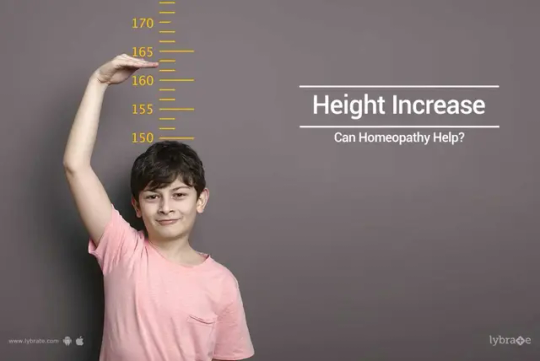
#greater noida#best homeo clinic in indirapuram#homeopathy for ibs#ghaziabad#homeopathy clinics#homeopathy cold treatment in indirapuram#homeopathy doctor#best skin doctor in ghaziabad#homeopathy#homeopathy medicine#best homeopathy clinic in indirapuram#best homeopathy doctor#homeopathy skin allergies treatment in indirapuram#homeopathy skin allergies treatment in noida#homeopathy specialist in indirapuram#homeopathy treatment#laser treatment in indirapuram#skin specialist in indirapuram#indirapuram#ghaziabad latest news#ghaziabadnews#best schools in ghaziabad#ayurvedic doctor in ghaziabad#wave city ghaziabad#greater noida west#child doctor in noida#child specialist in noida#noida news#nursery school in greater noida#noida
4 notes
·
View notes
Text
Best Homeopathy Medicine Hair Fall Treatment in Noida | Dr. Deepika's Homeopathy
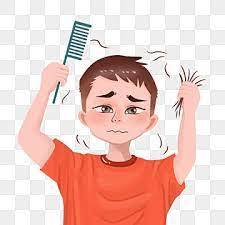
Homeopathy is a centuries-old holistic healing system that operates on the principle of 'like cures like.' It employs highly diluted natural substances, often derived from plants, minerals, or animal sources, to stimulate the body's own healing mechanisms. The individualized approach of homeopathy treats the person as a whole, taking into account physical, emotional, and mental aspects to find the most suitable remedy.
Visit Us: https://drdeepikashomeopathy.com/category/hair/
#Homeopathy Hair Fall Treatment in Noida#best homeopathy clinic in noida#best homeopathic doctor noida#top homeopathic doctor in noida#best homeopathic doctor near me
3 notes
·
View notes
Text
Best Homeopathy Clinic in Bhubaneswar | Consult with Best Homeopathy Doctor in Bhubaneswar - Multicare Homeopathy
Visit the best Homeopathy Clinic in Bhubaneswar to consult with Dr. Rangadhar Satapathy - One of the best Homeopathy Doctor in India, with more than experience of 34 years.You can consult with our senior doctors through Video Conference or Telephone Call and can get your medicine at your doorstep. We are providing online treatment for more than 300 chronic diseases.Explore the cure percentage of your diseases by our advanced and research based homeopathy treatment.
#Best Homeopathy Clinic in Bhubaneswar#Best Homeopathy Doctor in Bhubaneswar#homeopathy treatment for allergy rhinitis#homeopathy for allergy rhinitis#homeopathy#online homeopathy treatment for piles#homeopathy treatment for piles#homeopathy clinic#homeopathy doctor#homeopathy treatment
0 notes
Text
Amenorrhea homeopathy treatment in India
Aura Homeopathy offers effective Amenorrhea homeopathy treatment in India, focusing on natural remedies to restore hormonal balance and regulate menstrual cycles. Their personalized approach addresses the root cause of amenorrhea, providing a safe, side-effect-free solution to promote overall reproductive health and well-being for women facing menstrual irregularities.
#Amenorrhea Homeopathy Treatment in India#Amenorrhea Homeopathy Doctor in India#homeopathy treatment Amenorrhea in India#Amenorrhea Homeopathic Treatment India#best homeopathy Treatment for Amenorrhea in India#Homeopathy Treatment for Amenorrhea in India
0 notes